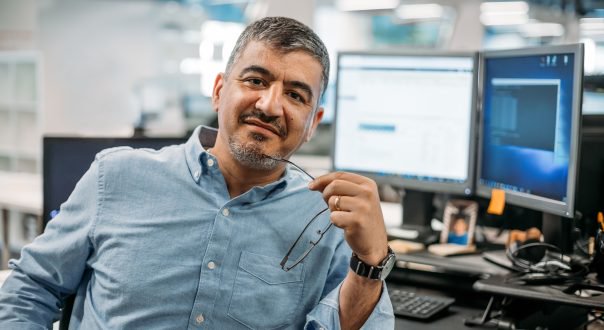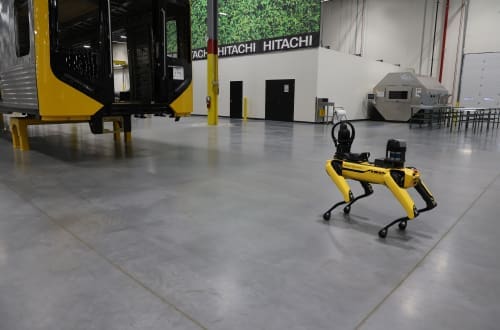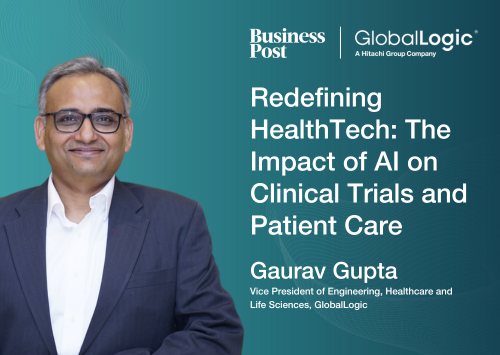- Services
Technology Capabilities
Technology Capabilities- Product Strategy & Experience DesignDefine software-driven value chains, create purposeful interactions, and develop new segments and offerings.
- Digital Business TransformationAdvance your digital transformation journey.
- Intelligence EngineeringLeverage data and AI to transform products, operations, and outcomes.
- Software Product EngineeringCreate high-value products faster with AI-powered and human-driven engineering.
- Technology ModernizationTackle technology modernization with approaches that reduce risk and maximize impact.
- Embedded Engineering & IT/OT TransformationDevelop embedded software and hardware. Build IoT and IT/OT solutions.
- Industries
- GlobalLogic VelocityAI
- Insights
BlogsDecember 16, 2024Gene LeybzonAccelerating Digital Transformation with Structured AI Outputs
This code produces the following output that can be imported into the candidate trackin...
 BlogsOctober 30, 2024Yuriy Yuzifovich
BlogsOctober 30, 2024Yuriy YuzifovichAccelerating Enterprise Value with AI
Discover how financial services integrations are transforming from standalone offerings...

- About Us
Press ReleaseGlobalLogicSeptember 23, 2025Hitachi agrees to acquire German data and AI services firm ...
Strengthening GlobalLogic’s data and consulting capabilities and expanding footprint in...
 Press ReleaseGlobalLogicSeptember 10, 2025
Press ReleaseGlobalLogicSeptember 10, 2025GlobalLogic and Ericsson Deploy Private 5G Network at Hitachi ...
The new infrastructure is the digital backbone of the Hagerstown plant, enhancing effic...

- Careers

Perfect platform for health tech
As technology has advanced, expectations have grown with it – and healthtech is no exception. Today, from clinical research to healthcare delivery, digital technology is at the centre of the process.
An obvious question today, given the raising of hopes around generative artificial intelligence (AI), is: will the technology turn out to be as transformative as it appears to be? It is a question worth asking, too, because as useful as office automation, for instance, might be, healthcare is a matter of life and death.
Of course, AI is more than just generative AI: deep learning and machine learning have long been important in any area that makes significant use of data. It is fair to say, however, that generative AI has raised expectations.
Gaurav Gupta, vice president of engineering, healthcare and life sciences at digital services specialist and developer GlobalLogic, said that AI was already at work, including in research.
“AI is reshaping the pharmaceutical and clinical trial industries by driving unprecedented drug discovery, diagnostics, and patient recruitment efficiencies. For instance, AI has enabled companies like Insilico Medicine to identify new drug candidates for idiopathic pulmonary fibrosis in a fraction of the time it would take using traditional methods. Their AI-driven platform reduced the discovery time from years to just 46 days, highlighting the potential for AI to accelerate timelines across the board,” he said
To meet growing expectations and interest in the area, GlobalLogic has built what it calls its Clinical Trials Innovation solution to build robust, clinically intelligent data platforms that leverage AI and machine learning (ML) and advanced analytics.
“These platforms address next-gen use cases such as real-world evidence (RWE) and decentralised trials. For example, in decentralised trials, AI algorithms can sift through vast amounts of patient data to identify suitable candidates, improving both speed and accuracy in patient recruitment,” Gupta said.
In addition, advances elsewhere in technology are driving ever-closer integration between pharma and digital health devices, particularly in diagnosis, monitoring and treatment.
“The convergence of pharmaceutical and digital health technologies is fostering a more integrated and patient-centric healthcare ecosystem,” Gupta said.
“For instance, companies like Proteus Digital Health have pioneered digital pills that monitor patient adherence in real-time, significantly improving treatment outcomes for chronic conditions like hypertension and diabetes,” he said.
AI is reshaping the pharmaceutical and clinical trial industries by driving unprecedented drug discovery, diagnostics, and patient recruitment efficiencies
Here, GlobalLogic offers its HealthConnect solution, which, he said, played a crucial role in this landscape by enabling the development of next-gen digital health technologies.
“These technologies use wearable devices and remote monitoring systems to continuously gather patient data, allowing for more proactive and personalised care.”
Developing healthtech
A robust data ecosystem is foundational to addressing the evolving needs of clinical trials, particularly in harnessing real-world data (RWD) and real-world evidence (RWE), as the information being synthesised is of extreme importance. One example, Gupta said, was summarising 800-page-plus reports on clinical studies for the development of medicines.
“GenAI is being leveraged to create medically-compliant content, significantly reducing the workload for medical writers. For example, Pfizer has utilised GenAI to automate the generation of Clinical Study Reports (CSRs), plain language summaries, and protocols, ensuring consistency and compliance while saving countless hours of manual labour.
“Through GlobalLogic's Clinical Trials Innovation solution, we help build such data ecosystems that seamlessly integrate RWD to support these futuristic use cases. By implementing GenAI, we enable the automation of content creation, ensuring compliance and accelerating timelines, ultimately leading to faster and more efficient trial processes,” he said.
Looking forward, Gupta said he saw a growing role for this intelligence to be met with real-time data collected from connected devices, something that GlobalLogic supported in applications not only for diagnosis, but also treatment, and ongoing care.
“IoT [internet of things] and remote monitoring technologies revolutionise patient care by enabling continuous, real-time health monitoring. This approach allows for early detection of potential health issues and timely interventions. A real-world example is Medtronic’s use of connected insulin pumps that adjust doses based on real-time glucose levels, significantly improving outcomes for diabetes patients.”
The upshot of widespread deployment of IoT would be positive, he said. “These innovations are particularly impactful in chronic disease management, where continuous monitoring via wearable devices has led to better patient outcomes and reduced healthcare costs, as demonstrated in various pilot programmes for heart failure management”.
Read the original article here.
 How can I help you?
How can I help you?
Hi there — how can I assist you today?
Explore our services, industries, career opportunities, and more.
Powered by Gemini. GenAI responses may be inaccurate—please verify. By using this chat, you agree to GlobalLogic's Terms of Service and Privacy Policy.
